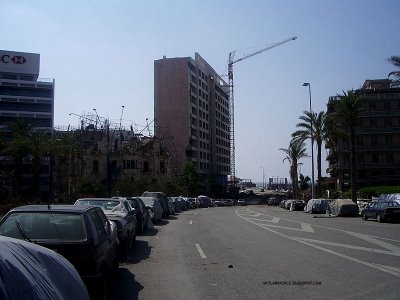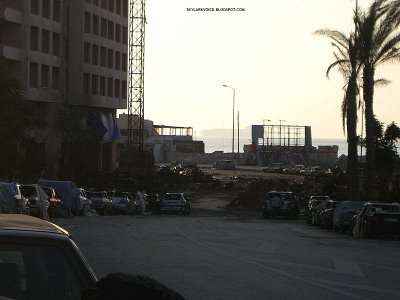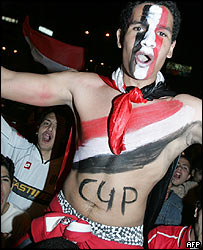Romeo & Romeo
At the end, my mother and I eventually watched the much-hyped movie Brokeback Mountain, which won the Golden Lion at the 2005 Venice International Film Festival, four awards (including best drama picture) at the 63rd Golden Globes and four awards (including best film) at the BAFTA on February 19. The movie has received eight nominations in the run-up to the 78th Academy Awards, which are scheduled on March 5.
Brokeback Mountain, directed by Taiwan Chinese Ang Lee (best known for Crouching Tiger, Hidden Dragon), is the story of two cowboys, Ennis Del Mar (Heath Ledger) and Jack Twist (Jake Gyllenhaal, the protagonist of sensational Donnie Darko).
In the summer of 1963, the two guys are sent to herd sheeps in the remote wilderness of Wyoming, where isolation, forced closeness and prolonged intimacy combine to forge a sexual and affective relationship. At the end of the summer, the two part ways and do not see each other for four years. After an ill-fated marriage with Alma (Michelle Williams), Ennis ends up as a "white trailer trash" type, while Jack marries a rodeo starlet (Anne Hathaway) with a rich and patronizing father. Incapable or unwilling to take more drastical choices, the two men let their lives drag on, meeting sporadically for short, passionate escapes.
Jack Twist: Tell you what, we coulda had a good life together! Fuckin' real good life! Had us a place of our own. But you didn't want it, Ennis! So what we got now is Brokeback Mountain! Everything's built on that! That’s all we got, boy, fuckin' all. So I hope you know that, even if you don't never know the rest! You count the damn few times we have been together in nearly twenty years and you measure the short fucking leash you keep me on – and then you ask me about Mexico and tell me you'll kill me for needing somethin' I don't hardly never get. You have no idea how bad it gets! I'm not you... I can't make it on a coupla high-altitude fucks once or twice a year! You are too much for me Ennis, you sonofawhore bitch! I wish I knew how to quit you.
Ennis Del Mar: [crying] Well, why don't you? Why don't you just let me be? It's because of you that I'm like this! I ain't got nothing... I ain't nowhere... Get the fuck off me! I can't stand being like this no more, Jack.There is no happy ending: apparently, romance cannot exist without some sort of drama.
The movie is well directed and enjoys imposing vistas, a captivating soundtrack and a stunning interpretation by the whole cast. Nevertheless, both my mother and I were quite underwhelmed at the drama as a whole. Despite the slow pace of the story and a lengthy runtime (2 hours and 14 minutes), the personality of the protagonists is never really delved into with empathy. A few scenes are pleonastic or gratuitous, while the crucial ones (like the dialogue above, which is probably the core of the film) should have been much more emphasized as the climax in a flood of suppressed emotions, repressed rage, dreams and fears.
(Update: I have read a very interesting comment which described Brokeback Mountain as "American to the backbone" and not exactly a gay drama, because the main protagonist is the force of nature, not the two cowboys. The theme of the escape into the wild nature is central to a large segment of the American literature, including classics such as Henry David Thoreau's Walden, Jack London's The Call of the Wild, Walt Whitman's Leaves of Grass, Jack Kerouac and, above all, Ernest Hemingway. The epos of the hero faced with an almost insurmountable challenge is very Hemingwayan, indeed.)
I couldn't help making a comparison between Brokeback Mountain and the 2002 Israeli movie Yossi & Jagger, directed by Eytan Fox.
In fact, there are striking similarities between the two couples of characters. In both cases, one of the guys is butch, closeted, seemingly unresponsive, while the other is slender, blue-eyed, outspoken, idealistic and doomed to a bad end. However, unlike Brokeback Mountain, Eytan Fox's Yossi & Jagger (although certainly not flawless) is brisk, very concise (only 67 minutes), vibrant, and goes directly to the point.
Allegedly based on a true story, the movie is set in a remote Israeli army base on the border with Southern Lebanon, possibly in the Israeli-occupied Golan Heights. Yossi (Ohad Knoller) and Lior also known as "Jagger" because of his glam attitude (Yehuda Levi) are two officers who are engaged in a love story. Yossi is at ease with his role of company commander and wants to keep the affair secret. Jagger is about to be discharged at the end of his draft term and would like to bring their relation to light. A night mission where something goes wrong will be the moment of an unexpected showdown.
The final scene and the closing credits come with a resounding cover by Ivri Lider of the renowned song Bo, originally performed by Rita. The cover was included in Ivri Lider's 2001 album Ha-anashim ha-chadashim ("The new people").
A movie with a similar theme is Bosnia-Herzegovina's Go West, directed by Ahmed Imamović. It is the story of a same-sex interethnic couple (one is a Serb, the other is a Bosniak, or Bosnian Muslim) during the 1992-1995 civil war.
The movie has caused a huge controversy in Bosnia, where it has been accused of belittling the issues that were at stake in the conflict. More probably, the film is disturbing because, in a context of raging ethnic and confessional strife, it reminds that interethnic relationships were not unusual in Sarajevo.
As expectable, the theme of homosexuality per se is even more disturbing. The Mladi muslimani ("Young Muslims") association in Sarajevo has been particularly vocal against the film.
























